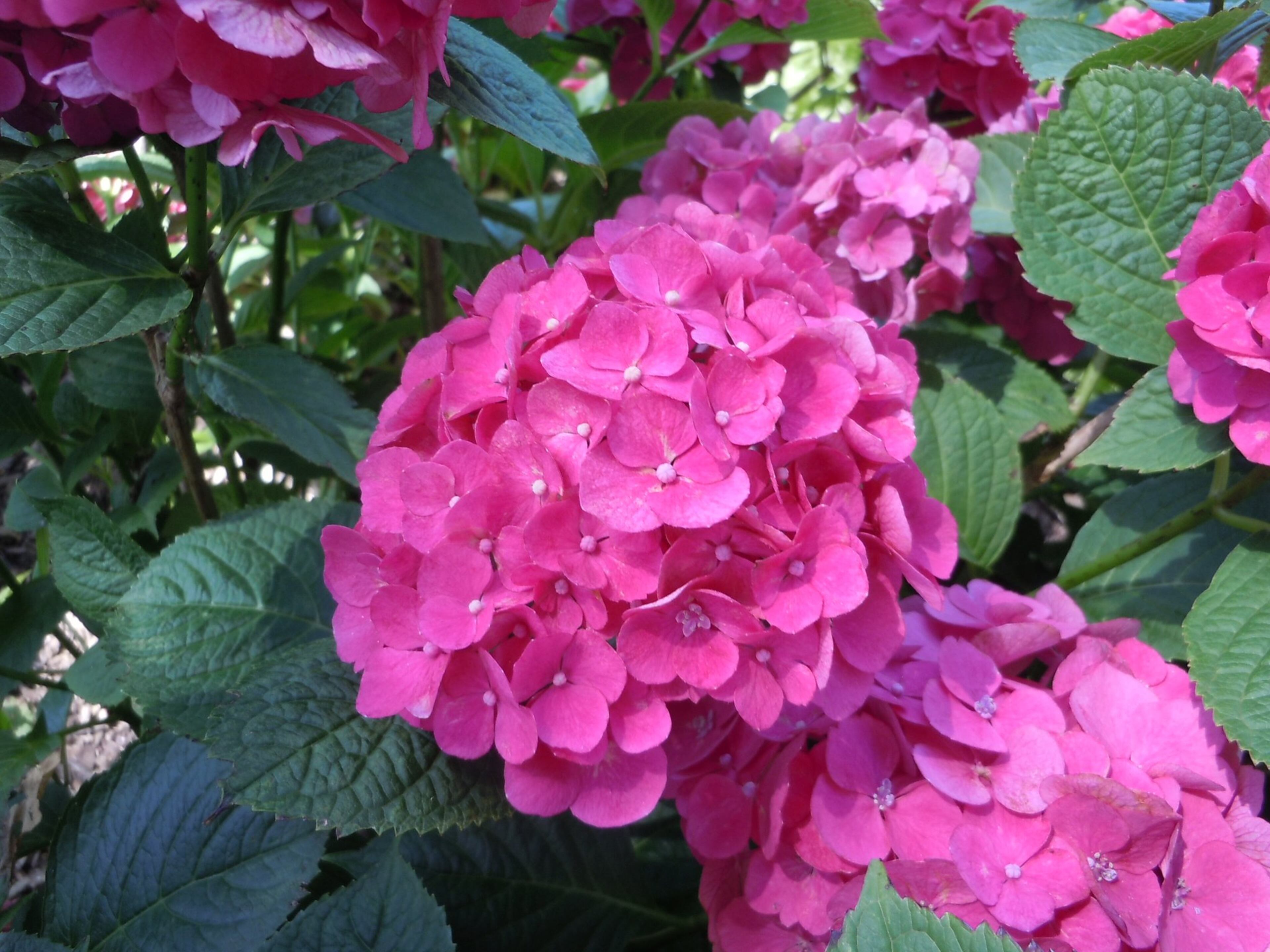Get more flowers with reblooming hydrangeas

Q: My hydrangea is no longer making blooms. I cut off the dead blooms awhile back, and the plant has put on a lot of new leaf growth. I have fertilized but thinking by now I should have seen more blooms. Brandon Crumsey, email
A: Most of the common mophead hydrangeas bloom only once each year, typically late May through June. But there are new varieties, including ‘Endless Summer’, ‘Forever and Ever’ and ‘Penny Mac’, that bloom in early summer and then sporadically the rest of the year. My guess is that you have one of the older types that only blooms once.

Q: We purchased a house with a big corner lot. I have Bradford pears on one side of my lawn and five cherry trees around the corner. Some of their roots protrude from the ground. Can I shave them down an inch or two so my mower can safely pass over? Chris Stith, Grayson
A: You will create lots of problems if you shave off the roots. First, removing the protective bark around the root will expose it to infection. The root could die, or it could transfer disease to the rest of the tree. If a root dies, it affects the anchoring structure of the tree and its ability to absorb moisture and nutrients. Second, if you shave them, the roots may not die but could form callus tissue. Particularly on Bradford pear and cherry, this damaged area will send up small sprouts, which you’ll constantly have to remove. Even if the roots don’t die or form callus tissue, they will inevitably grow bigger, and you’ll be back to shaving them down in a few years. My advice is to buy a truckload of sandy loam topsoil and spread it under the tree in a layer thick enough to hide the roots and mow unimpeded.
Q: Is there anything that will kill English ivy? Nothing seems to work. Jerry Porter, email
A: I control English ivy by using regular glyphosate (Roundup®, etc.) at the recommended rate. The key is not to expect anything immediately. In my experience, I don't see damage until two weeks after an application. The leaves get brown spots, turn yellow and gradually fall off. Also, I notice that if there's a lot of ivy, the first spraying only kills the top level of leaves. It takes a second spraying to ensure the lowest level of leaves and vines are killed as well.
Q: My tomato plants are being invaded by little black caterpillars that are eating the leaves. I am trying to keep my garden pesticide free. I am looking for something pollinator friendly. Jenny Ladd, email
A: The best organic control for caterpillars is any product containing Bacillus thuringiensis, abbreviated B.t. (Thuricide,DiPel, Caterpillar Killer, etc.) This bacteria is only activated in a caterpillar's alkaline digestive system, meaning that humans, birds and animals are not affected by it, but caterpillars are killed immediately. Remember that butterflies come from caterpillars, so it's a bad idea to spray your whole garden.
Listen to Walter Reeves Saturday mornings on News 95.5 FM and AM750 WSB. Visit his website, www.walterreeves.com, follow him on Twitter @walterreeves, on Pinterest, or join his Facebook Fan Page at bit.ly/georgiagardener for more garden tips.

